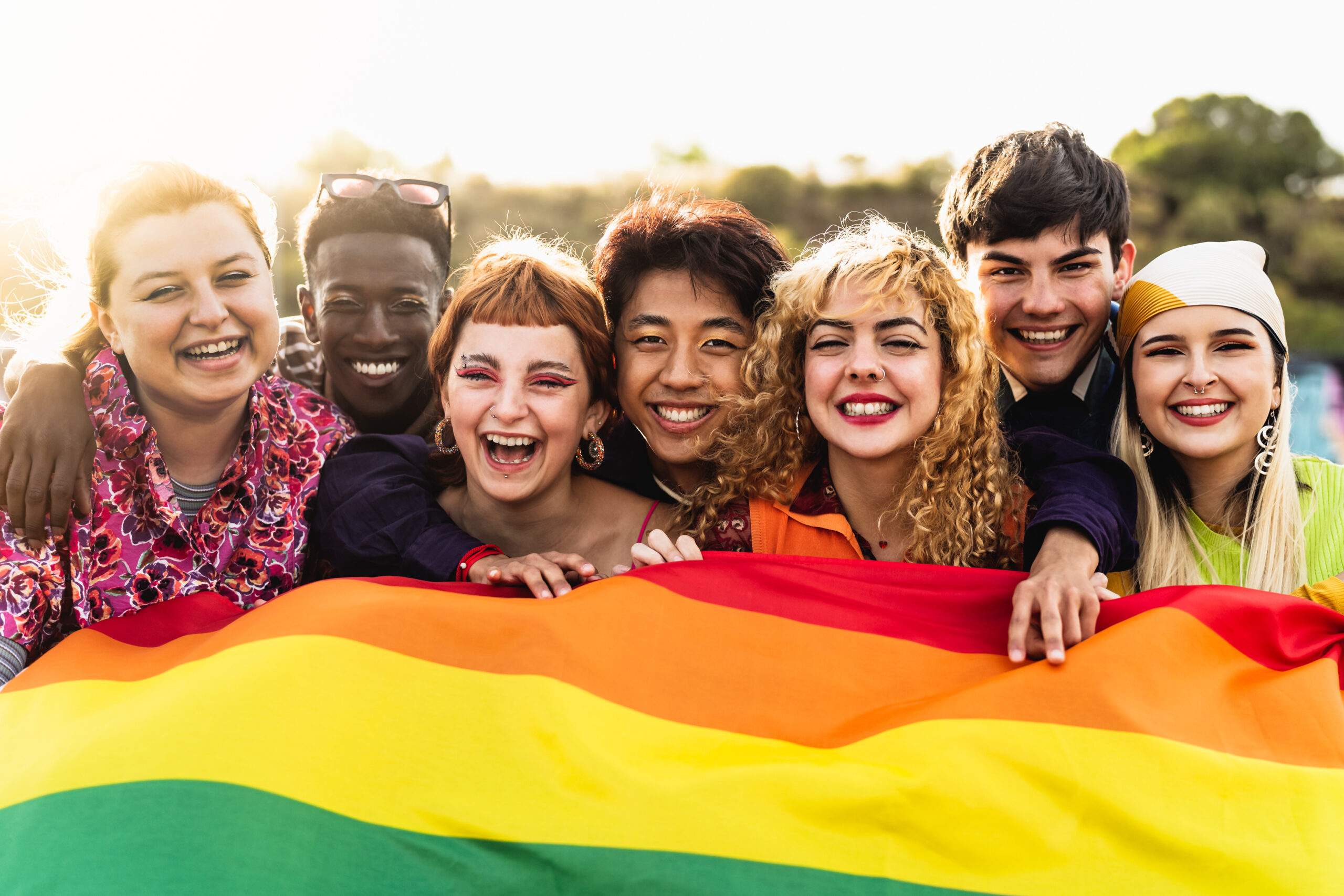Black Herstory Month: Audre Lorde and Lessons I Learned about Black Womanhood
The first book by Audre Lorde I read was Sister Outsider. It was March and I was getting ready to go home for spring break. I didn’t want to go back home after the months of freedom I enjoyed being away at college. To prepare for my trip home I went to the library to pick up two books I had waiting for me. Essex Hemphill’s Ceremonies and The Girl with the Dragon Tattoo. Sister Outsider happened to be sitting next to Ceremonies. I almost didn’t pick it up, thanks to white feminism. You see, like most Women’s Studies departments around the US, the Women’s Studies Department at my school is really great at talking about intersectionality. Doing intersectionality however, is another story. I had gotten so sick of seeing white feminists prove how “intersectional” they are by quoting Audre Lorde or bell hooks that on that fateful day, when I saw Audre Lorde’s name on the cover of the book, I couldn’t help but let out a sigh.
I was Audre Lorded out at that point, thanks to the white feminists constantly quoting her to score ally points. I picked up Ceremonies intending to leave but something told me to not ignore Sister Outsider. I went back and grabbed it, thinking at the very least I’ll skim a few pages. I didn’t end up skimming a few pages, I read and reread the entire book over two days. Sister Outsider managed to do for me what the bible and ten years of Catholicism hadn’t been able to do. Sister Outsider gave me hope, it gave me a renewed interest in life. I went into the book a sullen, frustrated, afraid, tired and contemptuous teenage girl and came out a whole new person. Well I was still contemptuous, but now I knew what to do about it.
For as long as I could remember I had always felt different and misunderstood. I never liked how I was forced to trade in jeans for dresses and soccer for the kitchen after I hit puberty. I always resented that I was solely responsible for the cooking and cleaning at our house even though my brother was older than me and sometimes he made better food. Men are not supposed to cook and clean when there’s a woman in the house, I would hear. I didn’t think it was fair that my brother could stay out later and attend parties when I still had to get permission to take out the trash. I didn’t like that I had to keep going to mass and pretend I loved Jesus when I didn’t particularly care for him or his “dad.” But most of all, I hated that every time I tried to voice my frustrations, I was told by well meaning family members that it was my duty to serve my family, that as a girl I had to put the needs of others above my own, and besides, this was practice for when I have a husband and children. (I see you compulsory hetrosexuality. Lolsob)
These were just some of the things I had been struggling with for years when I sat down to read Sister Outsider. I don’t know why I was so hesitant to read it because the book exceeded expectations I didn’t even realize I had. I could feel the tears streaming down my face as I sat crossed legged on the carpet in my bedroom. Every word, every paragraph was like a balm. Finally! Someone who felt exactly the way I did. And not just any someone but a someone who looked like me, a black woman. It was through the pages of Sister Outsider that I finally felt free, felt validated. I felt that I was heard. I felt that it wasn’t all in my head, that what was happening around me was an injustice. And even if my friends and family didn’t notice it, Audre Lorde had. I made a connection with Audre Lorde and in that moment I felt human.
Words are not enough to express the impact that Audre Lorde’s writing has had on my life. But I know that I would not be the womanist I am today had I not read Sister Outsider that day during spring break. Her words changed the course of my life for the better. Here are three of my favorite life lessons from the woman who changed my life.
1. Caring and loving myself as a black woman is a radical act: My favorite Audre Lorde quote goes something like this “Caring for myself is not self-indulgence, it is self-preservation, and that is an act of political warfare.” This quote of hers is well known and has resonated with many. But I feel a special kinship to it because I feel that this one was specifically for us black women (sorry white feminists, you cannot appropriate this). It resonated with me for so many reasons. Women are so often socialized to be nurture and care for everyone but ourselves. Black women, as the mules of the world, are especially prone to this socialization thanks to the legacy of slavery and white supremacy that likes to deem our black bodies as able-bodied even when we are not. When I hear that quote, I think of caring for my mental health, not internalising the racist message of the “strong black woman.” I think of being able to say “no” and knowing that it is okay to say “no.” When I hear that quote, I am reminded that I am not the world’s mule, I don’t have to shoulder other people’s burdens (I have enough of my own thankyouverymuch). That quote reminds me to put me first. To put my needs (physical, sexual, emotional etc) first. It reminds me that I (and black women) matter and that our well being matters too. That quote was the final push I needed to get my butt into therapy.
2. You’re not alone in your feelings and frustrations: Looking back, I think part of the reason I felt so alone was due to teenage angst. When you’re a teen and full of hormones, you think you’re the first person to ever feel despair, anguish, frustration. But I think the other part was also due to physical isolation. I was often one of like three black girls in class, prior to college. Racial and class differences meant that my conversations and relationships with my girl friends back then were at best superficial. Reading how Audre Lorde was able to articulate everything I was feeling and didn’t have the words to express was liberating. I didn’t care that she was dead, to know that she went through the same struggles I did (and continue to go through) was enough. It was extremely humbling knowing that there had been someone out there who gets it. Of course it was disheartening to know that society hadn’t done much in terms of advancing social justice because Sister Outsider was published before I was born and those issues she wrote about are still present today.
3. Paying attention to differences is crucial, in other words, intersectionality or bust: There’s that famous saying by Flavia Dzodan, “my feminism will be intersectional or it will be bullshit.” Intersectionality is something women of color have been talking about for a long time, long before Kimberle Crenshaw coined the term. Mainstream white feminism has shown over and over and over and over again that they don’t care all that much for intersectionality and that solidarity is indeed for white women. 34 years before #solidarityisforwhitewomen was trending on twitter, Audre Lorde herself wrote a letter to Mary Daly about white feminists’ long history of being unable to hear Black women’s words, or to maintain dialogue with us. One of her solutions to the continued racism in mainstream feminism and the sexism in black power/civil rights movements was building friendship and solidarity with fellow black women. I have found this to be especially true and important. Yes, we are not going to end racism by ourselves, but that doesn’t mean we can’t build our own communities and provide support for each other. At the end of a day full of racist, sexists and ableist microagrressions, the people I often find myself turning to are my black girlfriends. I know when I tell them about the microaggressions, they won’t play devil’s advocate, they wont put my experiences through a validity prism, they just listen. They get me and I get them and that’s very, very important for survival.
This year, I celebrate Audre Lorde and all the black women through whose words I’ve found peace and solidarity. Say it with me, “It is not our differences that divide us. It is our inability to recognize, accept, and celebrate those differences.”

Age: 21 School: The Ohio State University Major: Public Health-Sociology Specialization Hometown:Columbus, Ohio Favorite writer: right now it’s Trudy of Gradient Lair Favorite sex scene from …
More By This Author
